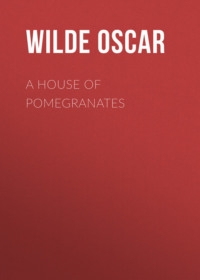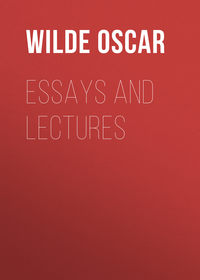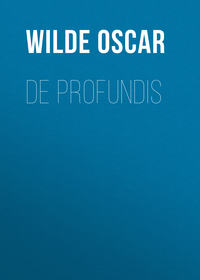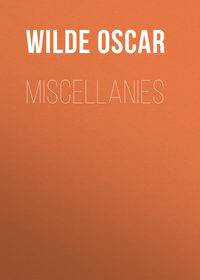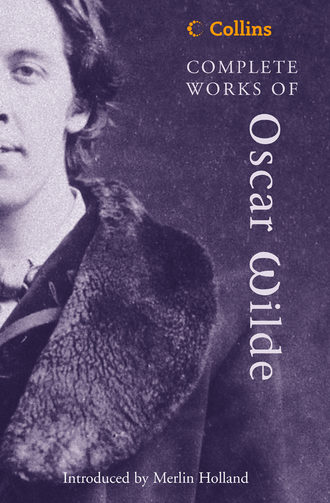
Полная версия
Complete Works of Oscar Wilde
‘Count Rouvaloff has given me an introduction to you,’ said Lord Arthur, bowing, ‘and I am anxious to have a short interview with you on a matter of business. My name is Smith, Mr. Robert Smith, and I want you to supply me with an explosive clock.’
‘Charmed to meet you, Lord Arthur,’ said the genial little German, laughing. ‘Don’t look so alarmed, it is my duty to know everybody, and I remember seeing you one evening at Lady Windermere’s. I hope her ladyship is quite well. Do you mind sitting with me while I finish my breakfast? There is an excellent paté, and my friends are kind enough to say that my Rhine wine is better than any they get at the German Embassy,’ and before Lord Arthur had got over his surprise at being recognised, he found himself seated in the back-room, sipping the most delicious Marcobrünner out of a pale yellow hock-glass marked with the Imperial monogram, and chatting in the friendliest manner possible to the famous conspirator.
‘Explosive clocks,’ said Herr Winckelkopf, ‘are not very good things for foreign exportation, as, even if they succeed in passing the Custom House, the train service is so irregular, that they usually go off before they have reached their proper destination. If, however, you want one for home use, I can supply you with an excellent article, and guarantee that you will be satisfied with the result. May I ask for whom it is intended? If it is for the police, or for any one connected with Scotland Yard, I am afraid I cannot do anything for you. The English detectives are really our best friends, and I have always found that by relying on their stupidity, we can do exactly what we like. I could not spare one of them.’
‘I assure you,’ said Lord Arthur, ‘that it has nothing to do with the police at all. In fact, the clock is intended for the Dean of Chichester.’
‘Dear me! I had no idea that you felt so strongly about religion, Lord Arthur. Few young men do nowadays.’
‘I am afraid you overrate me, Herr Winckelkopf,’ said Lord Arthur, blushing. ‘The fact is, I really know nothing about theology.’
‘It is a purely private matter then?’
‘Purely private.’
Herr Winckelkopf shrugged his shoulders, and left the room, returning in a few minutes with a round cake of dynamite about the size of a penny, and a pretty little French clock, surmounted by an ormolu figure of Liberty trampling on the hydra of Despotism.
Lord Arthur’s face brightened up when he saw it. ‘That is just what I want,’ he cried, ‘and now tell me how it goes off.’
‘Ah! there is my secret,’ answered Herr Winckelkopf, contemplating his invention with a justifiable look of pride; ‘let me know when you wish it to explode, and I will set the machine to the moment.’
‘Well, to-day is Tuesday, and if you could send it off at once –’
‘That is impossible; I have a great deal of important work on hand for some friends of mine in Moscow. Still, I might send it off to-morrow.’
‘Oh, it will be quite time enough!’ said Lord Arthur politely, ‘if it is delivered to-morrow night or Thursday morning. For the moment of the explosion, say Friday at noon exactly. The Dean is always at home at that hour.’
‘Friday, at noon,’ repeated Herr Winckelkopf, and he made a note to that effect in a large ledger that was lying on a bureau near the fireplace.
‘And now,’ said Lord Arthur, rising from his seat, ‘pray let me know how much I am in your debt.’
‘It is such a small matter, Lord Arthur, that I do not care to make any charge. The dynamite comes to seven and sixpence, the clock will be three pounds ten, and the carriage about five shillings. I am only too pleased to oblige any friend of Count Rouvaloff’s.’
‘But your trouble, Herr Winckelkopf?’
‘Oh, that is nothing! It is a pleasure to me. I do not work for money; I live entirely for my art.’
Lord Arthur laid down £4.2s.6d on the table, thanked the little German for his kindness, and, having succeeded in declining an invitation to meet some Anarchists at a meat-tea on the following Saturday, left the house and went off to the Park.
For the next two days he was in a state of the greatest excitement, and on Friday at twelve o’clock he drove down to the Buckingham to wait for news. All the afternoon the stolid hall-porter kept posting up telegrams from various parts of the country giving the results of horse-races, the verdicts in divorce suits, the state of the weather, and the like, while the tape ticked out wearisome details about an all-night sitting in the House of Commons, and a small panic on the Stock Exchange. At four o’clock the evening papers came in, and Lord Arthur disappeared into the library with the Pall Mall, the St. James’s, the Globe, and the Echo, to the immense indignation of Colonel Goodchild, who wanted to read the reports of a speech he had delivered that morning at the Mansion House, on the subject of South African Missions, and the advisability of having black Bishops in every province, and for some reason or other had a strong prejudice against the Evening News. None of the papers, however, contained even the slightest allusion to Chichester, and Lord Arthur felt that the attempt must have failed. It was a terrible blow to him, and for a time he was quite unnerved. Herr Winckelkopf, whom he went to see the next day, was full of elaborate apologies, and offered to supply him with another clock free of charge, or with a case of nitro-glycerine bombs at cost price. But he had lost all faith in explosives, and Herr Winckelkopf himself acknowledged that everything is so adulterated nowadays, that even dynamite can hardly be got in a pure condition. The little German, however, while admitting that something must have gone wrong with the machinery, was not without hope that the clock might still go off, and instanced the case of a barometer that he had once sent to the military Governor at Odessa, which, though timed to explode in ten days, had not done so for something like three months. It was quite true that when it did go off, it merely succeeded in blowing a housemaid to atoms, the Governor having gone out of town six weeks before, but at least it showed that dynamite, as a destructive force, was, when under the control of machinery, a powerful, though somewhat unpunctual agent. Lord Arthur was a little consoled by this reflection, but even here he was destined to disappointment, for two days afterwards, as he was going upstairs, the Duchess called him into her boudoir, and showed him a letter she had just received from the Deanery.
‘Jane writes charming letters,’ said the Duchess; ‘you must really read her last. It is quite as good as the novels Mudie sends us.’ Lord Arthur seized the letter from her hand. It ran as follows: –
THE DEANERY, CHICHESTER,
27th May.
My dearest Aunt,
Thank you so much for the flannel for the Dorcas Society, and also for the gingham. I quite agree with you that it is nonsense their wanting to wear pretty things, but everybody is so Radical and irreligious nowadays, that it is difficult to make them see that they should not try and dress like the upper classes. I am sure I don’t know what we are coming to. As papa has often said in his sermons, we live in an age of unbelief.
We have had great fun over a clock that an unknown admirer sent papa last Thursday. It arrived in a wooden box from London, carriage paid; and papa feels it must have been sent by some one who had read his remarkable sermon, ‘Is Licence Liberty?’ for on the top of the clock was a figure of a woman, with what papa said was the cap of Liberty on her head. I don’t think it very becoming myself, but papa said it was historical, so I suppose it is all right. Parker unpacked it, and papa put it on the mantelpiece in the library, and we were all sitting there on Friday morning, when just as the clock struck twelve, we heard a whirring noise, a little puff of smoke came from the pedestal of the figure, and the goddess of Liberty fell off, and broke her nose on the fender! Maria was quite alarmed, but it looked so ridiculous, that James and I went off into fits of laughter, and even papa was amused. When we examined it, we found it was a sort of alarm clock, and that, if you set it to a particular hour, and put some gunpowder and a cap under a little hammer, it went off whenever you wanted. Papa said it must not remain in the library, as it made a noise, so Reggie carried it away to the schoolroom, and does nothing but have small explosions all day long. Do you think Arthur would like one for a wedding present? I suppose they are quite fashionable in London. Papa says they should do a great deal of good, as they show that Liberty can’t last, but must fall down. Papa says Liberty was invented at the time of the French Revolution. How awful it seems!
I have now to go to the Dorcas, where I will read your most instructive letter. How true, dear aunt, your idea is, that in their rank of life they should wear what is unbecoming. I must say it is absurd, their anxiety about dress, when there are so many more important things in this world, and in the next. I am so glad your flowered poplin turned out so well, and that your lace was not torn. I am wearing my yellow satin, that you so kindly gave me, at the Bishop’s on Wednesday, and think it will look all right. Would you have bows or not? Jennings says that every one wears bows now, and that the underskirt should be frilled. Reggie has just had another explosion, and papa has ordered the clock to be sent to the stables. I don’t think papa likes it so much as he did at first, though he is very flattered at being sent such a pretty and ingenious toy. It shows that people read his sermons, and profit by them.
Papa sends his love, in which James, and Reggie, and Maria all unite, and, hoping that Uncle Cecil’s gout is better, believe me, dear aunt, ever your affectionate niece,
Jane Percy.
PS. – Do tell me about the bows. Jennings insists they are the fashion.
Lord Arthur looked so serious and unhappy over the letter, that the Duchess went into fits of laughter.
‘My dear Arthur,’ she cried, ‘I shall never show you a young lady’s letter again! But what shall I say about the clock? I think it is a capital invention, and I should like to have one myself
‘I don’t think much of them,’ said Lord Arthur, with a sad smile, and, after kissing his mother, he left the room.
When he got upstairs, he flung himself on a sofa, and his eyes filled with tears. He had done his best to commit this murder, but on both occasions he had failed, and through no fault of his own. He had tried to do his duty, but it seemed as if Destiny herself had turned traitor. He was oppressed with the sense of the barrenness of good intentions, of the futility of trying to be fine. Perhaps it would be better to break off the marriage altogether. Sybil would suffer, it is true, but suffering could not really mar a nature so noble as hers. As for himself, what did it matter? There is always some war in which a man can die, some cause to which a man can give his life, and as life had no pleasure for him, so death had no terror. Let Destiny work out his doom. He would not stir to help her.
At half-past seven he dressed, and went down to the club. Surbiton was there with a party of young men, and he was obliged to dine with them. Their trivial conversation and idle jests did not interest him, and as soon as coffee was brought he left them, inventing some engagement in order to get away. As he was going out of the club, the hall-porter handed him a letter. It was from Herr Winckelkopf, asking him to call down the next evening, and look at an explosive umbrella, that went off as soon as it was opened. It was the very latest invention, and had just arrived from Geneva. He tore the letter up into fragments. He had made up his mind not to try any more experiments. Then he wandered down to the Thames Embankment, and sat for hours by the river. The moon peered through a mane of tawny clouds, as if it were a lion’s eye, and innumerable stars spangled the hollow vault, like gold dust powdered on a purple dome. Now and then a barge swung out into the turbid stream, and floated away with the tide, and the railway signals changed from green to scarlet as the trains ran shrieking across the bridge. After some time, twelve o’clock boomed from the tall tower at Westminster, and at each stroke of the sonorous bell the night seemed to tremble. Then the railway lights went out, one solitary lamp left gleaming like a large ruby on a giant mast, and the roar of the city became fainter.
At two o’clock he got up, and strolled towards Blackfriars. How unreal everything looked! How like a strange dream! The houses on the other side of the river seemed built out of darkness. One would have said that silver and shadow had fashioned the world anew. The huge dome of St. Paul’s loomed like a bubble through the dusky air.
As he approached Cleopatra’s Needle he saw a man leaning over the parapet, and as he came nearer the man looked up, the gas-light falling full upon his face.
It was Mr. Podgers, the chiromantist! No one could mistake the fat, flabby face, the gold-rimmed spectacles, the sickly feeble smile, the sensual mouth.
Lord Arthur stopped. A brilliant idea flashed across him, and he stole softly up behind. In a moment he had seized Mr. Podgers by the legs, and flung him into the Thames. There was a coarse oath, a heavy splash, and all was still. Lord Arthur looked anxiously over, but could see nothing of the chiromantist but a tall hat, pirouetting in an eddy of moonlit water. After a time it also sank, and no trace of Mr. Podgers was visible. Once he thought that he caught sight of the bulky misshapen figure striking out for the staircase by the bridge, and a horrible feeling of failure came over him but it turned out to be merely a reflection, and when the moon shone out from behind a cloud it passed away. At last he seemed to have realised the decree of Destiny. He heaved a deep sigh of relief, and Sybil’s name came to his lips.
‘Have you dropped anything, sir?’ said a voice behind him suddenly.
He turned round, and saw a policeman with a bull’s-eye lantern.
‘Nothing of importance, sergeant,’ he answered, smiling, and hailing a passing hansom, he jumped in, and told the man to drive to Belgrave Square.
For the next few days he alternated between hope and fear. There were moments when he almost expected Mr. Podgers to walk into the room, and yet at other times he felt that Fate could not be so unjust to him. Twice he went to the chiromantist’s address in West Moon Street, but he could not bring himself to ring the bell. He longed for certainty, and was afraid of it.
Finally it came. He was sitting in the smoking-room of the club having tea, and listening rather wearily to Surbiton’s account of the last comic song at the Gaiety, when the waiter came in with the evening papers. He took up the St. James’s, and was listlessly turning over its pages, when this strange heading caught his eye:
‘SUICIDE OF A CHIROMANTIST.’
He turned pale with excitement, and began to read. The paragraph ran as follows:
‘Yesterday morning, at seven o’clock, the body of Mr. Septimus R. Podgers, the eminent chiromantist, was washed on shore at Greenwich, just in front of the Ship Hotel. The unfortunate gentleman had been missing for some days, and considerable anxiety for his safety had been felt in chiromantic circles. It is supposed that he committed suicide under the influence of a temporary mental derangement, caused by overwork, and a verdict to that effect was returned this afternoon by the coroner’s jury. Mr. Podgers had just completed an elaborate treatise on the subject of the Human Hand, that will shortly be published, when it will no doubt attract much attention. The deceased was sixty-five years of age, and does not seem to have left any relations.’
Lord Arthur rushed out of the club with the paper still in his hand, to the immense amazement of the hall-porter, who tried in vain to stop him, and drove at once to Park Lane. Sybil saw him from the window, and something told her that he was the bearer of good news. She ran down to meet him, and, when she saw his face, she knew that all was well.
‘My dear Sybil,’ cried Lord Arthur, ‘let us be married to-morrow!’
‘You foolish boy! Why, the cake is not even ordered!’ said Sybil, laughing through her tears.
6
WHEN the wedding took place, some three weeks later, St. Peter’s was crowded with a perfect mob of smart people. The service was read in the most impressive manner by the Dean of Chichester, and everybody agreed that they had never seen a handsomer couple than the bride and bridegroom. They were more than handsome, however – they were happy. Never for a single moment did Lord Arthur regret all that he had suffered for Sybil’s sake, while she, on her side, gave him the best things a woman can give to any man – worship, tenderness, and love. For them romance was not killed by reality. They always felt young.
Some years afterwards, when two beautiful children had been born to them, Lady Windermere came down on a visit to Alton Priory, a lovely old place, that had been the Duke’s wedding present to his son; and one afternoon as she was sitting with Lady Arthur under a lime-tree in the garden, watching the little boy and girl as they played up and down the rose-walk, like fitful sunbeams, she suddenly took her hostess’s hand in hers, and said, ‘Are you happy, Sybil?’
‘Dear Lady Windermere, of course I am happy. Aren’t you?’
‘I have no time to be happy, Sybil. I always like the last person who is introduced to me; but, as a rule, as soon as I know people I get tired of them.’
‘Don’t your lions satisfy you, Lady Windermere?’
‘Oh dear, no! lions are only good for one season. As soon as their manes are cut, they are the dullest creatures going. Besides, they behave very badly, if you are really nice to them. Do you remember that horrid Mr. Podgers? He was a dreadful impostor. Of course, I didn’t mind that at all, and even when he wanted to borrow money I forgave him, but I could not stand his making love to me. He has really made me hate chiromancy. I go in for telepathy now. It is much more amusing.’
‘You mustn’t say anything against chiromancy here, Lady Windermere; it is the only subject that Arthur does not like people to chaff about. I assure you he is quite serious over it.’
‘You don’t mean to say that he believes in it, Sybil?’
‘Ask him, Lady Windermere, here he is’; and Lord Arthur came up the garden with a large bunch of yellow roses in his hand, and his two children dancing round him.
‘Lord Arthur?’
‘Yes, Lady Windermere.’
‘You don’t mean to say that you believe in chiromancy?’
‘Of course I do,’ said the young man, smiling.
‘But why?’
‘Because I owe to it all the happiness of my life,’ he murmured, throwing himself into a wicker chair.
‘My dear Lord Arthur, what do you owe to it?’
‘Sybil,’ he answered, handing his wife the roses, and looking into her violet eyes.
‘What nonsense!’ cried Lady Windermere. ‘I never heard such nonsense in all my life.’
THE CANTERVILLE GHOST
A Hylo-Idealistic Romance
1
WHEN Mr. Hiram B. Otis, the American minister, bought Canterville Chase, every one told him he was doing a very foolish thing, as there was no doubt at all that the place was haunted. Indeed, Lord Canterville himself, who was a man of the most punctilious honour, had felt it his duty to mention the fact to Mr. Otis, when they came to discuss terms.
‘We have not cared to live in the place ourselves,’ said Lord Canterville, ‘since my grand-aunt, the Dowager Duchess of Bolton, was frightened into a fit, from which she never really recovered, by two skeleton hands being placed on her shoulders as she was dressing for dinner, and I feel bound to tell you, Mr. Otis, that the ghost has been seen by several living members of my family, as well as by the rector of the parish, the Rev. Augustus Dampier, who is a fellow of King’s College, Cambridge. After the unfortunate accident to the Duchess, none of our younger servants would stay with us, and Lady Canterville often got very little sleep at night, in consequence of the mysterious noises that came from the corridor and the library.’
‘My lord,’ answered the Minister, ‘I will take the furniture and the ghost at a valuation. I come from a modern country, where we have everything that money can buy; and with all our spry young fellows painting the Old World red, and carrying off your best actresses and prima-donnas, I reckon that if there were such a thing as a ghost in Europe, we’d have it at home in a very short time in one of our public museums, or on the road as a show.’
‘I fear that the ghost exists,’ said Lord Canterville, smiling, ‘though it may have resisted the overtures of your enterprising impresarios. It has been well known for three centuries, since 1584 in fact, and always makes its appearance before the death of any member of our family.’
‘Well, so does the family doctor for that matter, Lord Canterville. But there is no such thing, sir, as a ghost, and I guess the laws of nature are not going to be suspended for the British aristocracy.’
‘You are certainly very natural in America,’ answered Lord Canterville, who did not quite understand Mr. Otis’s last observation, ‘and if you don’t mind a ghost in the house, it is all right. Only you must remember I warned you.’
A few weeks after this, the purchase was completed, and at the close of the season the Minister and his family went down to Canterville Chase. Mrs. Otis, who, as Miss Lucretia R. Tappan, of West 53rd Street, had been a celebrated New York belle, was now a very handsome middle-aged woman, with fine eyes, and a superb profile. Many American ladies on leaving their native land adopt an appearance of chronic ill-health, under the impression that it is a form of European refinement, but Mrs. Otis had never fallen into this error. She had a magnificent constitution, and a really wonderful amount of animal spirits. Indeed, in many respects, she was quite English, and was an excellent example of the fact that we have really everything in common with America nowadays, except, of course, language. Her eldest son, christened Washington by his parents in a moment of patriotism, which he never ceased to regret, was a fair-haired, rather good-looking young man, who had qualified himself for American diplomacy by leading the German at the Newport Casino for three successive seasons, and even in London was well known as an excellent dancer. Gardenias and the peerage were his only weaknesses. Otherwise he was extremely sensible. Miss Virginia E. Otis was a little girl of fifteen, lithe and lovely as a fawn, and with a fine freedom in her large blue eyes. She was a wonderful amazon, and had once raced old Lord Bilton on her pony twice round the park, winning by a length and a half, just in front of the Achilles statue, to the huge delight of the young Duke of Cheshire, who proposed to her on the spot, and was sent back to Eton that very night by his guardians, in floods of tears. After Virginia came the twins, who were usually called ‘The Stars and Stripes’ as they were always getting swished. They were delightful boys, and with the exception of the worthy Minister the only true republicans of the family.
As Canterville Chase is seven miles from Ascot, the nearest railway station, Mr. Otis had telegraphed for a waggonette to meet them, and they started on their drive in high spirits. It was a lovely July evening, and the air was delicate with the scent of the pinewoods. Now and then they heard a wood pigeon brooding over its own sweet voice, or saw, deep in the rustling fern, the burnished breast of the pheasant. Little squirrels peered at them from the beech-trees as they went by, and the rabbits scudded away through the brushwood and over the mossy knolls, with their white tails in the air. As they entered the avenue of Canterville Chase, however, the sky became suddenly overcast with clouds, a curious stillness seemed to hold the atmosphere, a great flight of rooks passed silently over their heads, and, before they reached the house, some big drops of rain had fallen.


